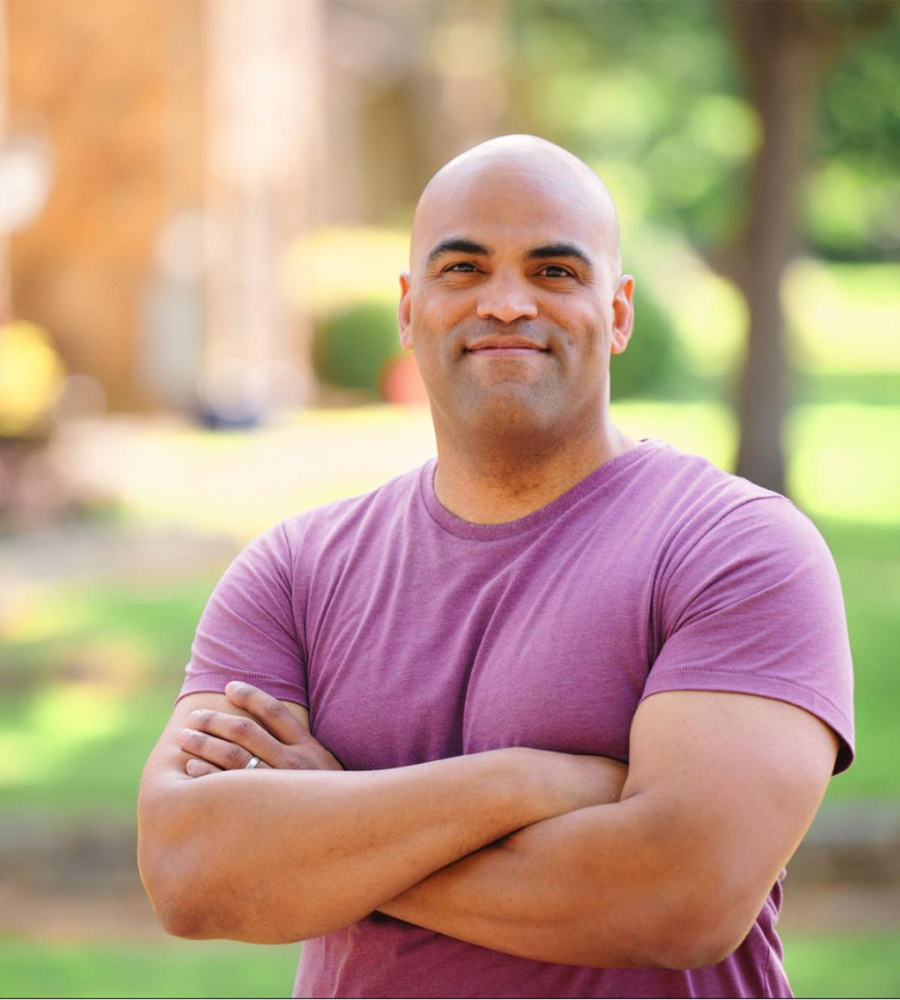Things are a little different now than they were in 2018. Also, Dems have very few even remotely realistic pickup opportunities this cycle, so.
With more than four months left before Election Day 2018, Democrat Beto O’Rourke had campaigned in all of Texas’ 254 counties in his bid to unseat Republican U.S. Sen. Ted Cruz. It was a novel strategy central to breaking through in a Republican-controlled state that national Democrats had largely written off.
Six years later, U.S. Rep. Colin Allred is taking a much more traditional approach to campaigning as he tries to do what O’Rourke couldn’t: topple Cruz. Allred has made only 125 campaign stops so far, focusing instead on getting his message out early and directly to wide swaths of voters in TV, radio and digital ads. The Allred campaign isn’t skimping on the state’s expensive media markets, booking ads in the Houston, San Antonio, Laredo and Rio Grande Valley markets last month, and placing English and Spanish ads on digital platforms statewide.
Most notably, national Democrats are showing their confidence by investing in the state more proactively than in the past.
The change in tactic shows how the landscape in Texas has evolved for Democrats since the last time they tried to oust Cruz. Democrats outside of Texas have long thought the state is just too big, too expensive and too Republican to bother pouring in money. But the near-success of the 2018 O’Rourke campaign, the development of Democratic campaign infrastructure and the roster of U.S. Senate seats up for election this year are pushing the party to take Texas more seriously.
“In terms of Texas, we have a real opportunity there. Colin Allred is a strong candidate. He won decisively a primary. He is a man who was able to win a tough seat in the Dallas area, beating an entrenched Republican,” Sen. Gary Peters, who chairs the Democratic Senatorial Campaign Committee, said in a March interview with MSNBC’s Morning Joe. “He knows how to win.”
To be sure, Democrats will be running uphill in the state, which Republicans have dominated for a generation. Cruz has made it clear he is not taking anything for granted after the 2018 scare when O’Rourke came within 3 points of beating him. That year was the closest Democrats came to breaking their long-running statewide drought.
[…]
The DSCC identified the state as one of its top two pick-up opportunities this year along with Florida. The group is funding staffers in the state and funneling money into advertising. And with several months until Election Day, Democratic strategists alert that the pushes will only amplify exponentially as the summer months progress.
The DSCC included Texas in a $79 million ad buy announced last fall, including a seven-figure digital advertising investment for the state. It has financed new staff positions in Texas dedicated to finding and pitching opposition material on Cruz, and ran an ad casting Cruz as pushing legislation that would curb Medicare and Social Security benefits.
Veterans of the O’Rourke campaign say no such support existed from national Democrats this early in the 2018 cycle.
“There wasn’t as much of a presumption of coordination in 2018 as there is now because Texas hadn’t been competitive statewide in 25 years,” said Katherine Fischer, a Beto campaign alumna who is now deputy executive director of Texas Majority PAC.
It took years for Texas Democrats to get their national counterparts to take their runs seriously. Former state Sen. Wendy Davis remembers during her 2014 gubernatorial run — which got intense coverage following her historic filibuster against an abortion bill the year before — that national Democrats often used her story to fundraise, only to send the money to other gubernatorial candidates in other states.
“Now, not only do you have the verbal support for calling from these groups, but what you’re starting to see is they’re going to make significant investments in this race,” Davis said. “And that’s the first time that we’ve had this kind of national political money coming in to help one of our statewide candidates.”
Matt Angle, director of the Lone Star Project, said Democrats outside of the state were much more interested in House races in 2018 than helping O’Rourke. Several districts were competitive that year and attracted millions in investment from the Democratic Congressional Campaign Committee, including Allred’s House race that year.
Meanwhile, the DSCC was faced with an unfavorable map for Democrats and more attainable pick-up opportunities in the far less expensive swing states of Nevada and Arizona (Democrats won in both races that year). Texas contains two of the 10 most expensive media markets in the country (Dallas-Fort Worth and Houston), and the sheer vastness of the state makes it a daunting prospect.
“Beto gets most of the credit” for his 2018 successes, Angle said. “Whatever the DSCC did, they did late. That’s not surprising. That’s what I would expect: The DSCC first would have to protect their incumbents and Texas is a giant investment statewide for them.”
Zack Malitz, who was the field director of O’Rourke’s 2018 campaign, said the campaign’s aggressive investments in recruiting a large volunteer network could help future Democratic candidates.
“One built-in advantage that Texas campaigns have now is that you have tens of thousands of people who have volunteered on well-managed field programs in Texas and so the upfront investment to activate those people is a lot lower now,” Malitz.
You know me, ever the optimist. I want to believe. Hell, I know fully well that national Democrats really need to see Texas both as a threat and an opportunity, so even seeing this relatively modest response is at least a step in the right direction. What it all means in the end, I have no idea. If it has the effect of making a few more State House races winnable, I’ll take that as success. More would be great, but we have to start somewhere.

